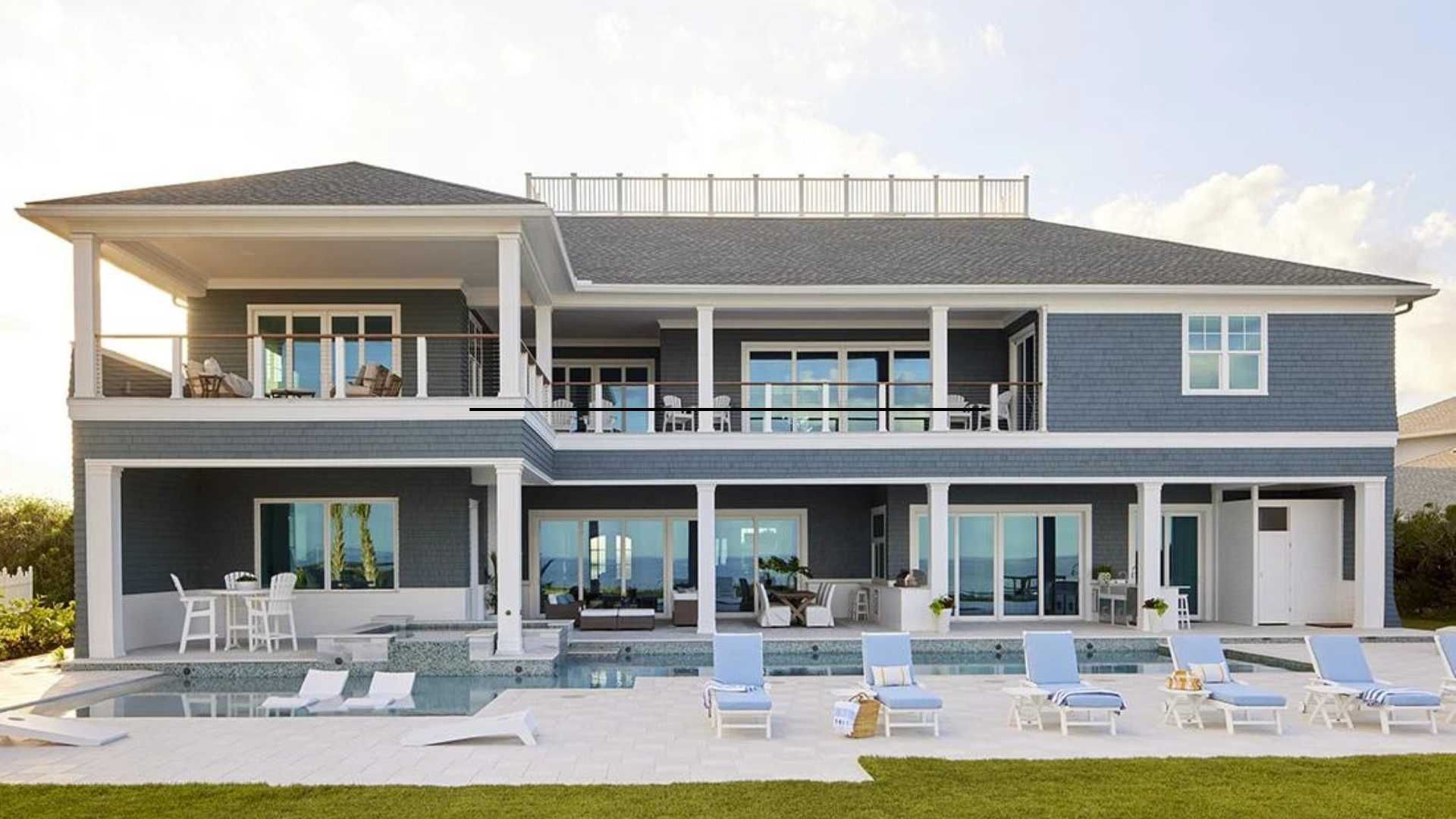
 Collin Goodwin
Collin GoodwinLiving in Florida has its perks—sunshine, beaches, and that laid-back lifestyle we all love. But as any Floridian knows, the occasional hurricane comes with the territory. With recent updates to building codes in Okaloosa and Walton County, the question on many homeowners’ minds is: “Does my home need impact windows?”
In this guide, we’ll break down everything you need to know about impact windows, the new building codes, and when you might need to upgrade. We’ll keep it straightforward and friendly, with just the right amount of wit to keep things interesting. Let’s get started.
What Are Impact Windows?
First things first: What exactly are impact windows? These windows are designed to withstand the high winds and flying debris that can occur during a hurricane. They’re not just about tough glass; it’s the entire system—glass, frame, installation, and glazing—that works together to protect your home.
Impact windows are built to resist shattering. If debris hits the window, it may crack, but it won’t break into dangerous shards. This reduces the risk of injury and helps maintain your home’s structural integrity during a storm. It’s like having an extra layer of defense for your home.
Why Are Impact Windows Important Now?
You might be wondering why impact windows are suddenly a hot topic. The recent updates to Florida’s building codes have expanded the Windborne Debris Region in Okaloosa and Walton County. This region now extends further inland, including areas like Crestview that weren’t previously affected.
What does this mean for you? If you’re building a new home in these areas, impact windows are now required. But what if you’re repairing or replacing existing windows? That’s where things get a bit more complex.
Do I Need Impact Windows? Let’s Break It Down
Here’s what you need to know about whether your home requires impact windows.
Is Your Home in a Windborne Debris Region?
The first step is to determine if your home is located in the newly expanded Windborne Debris Region. If you live in Okaloosa or Walton County, your home likely falls into this category. If it does, the building code requires impact-rated windows for all new construction.
Was Your Home Built Before 2002?
Homes built before 2002 may not be subject to the same requirements. The 2002 Florida Building Code (FBC) introduced more stringent standards for hurricane protection, including the requirement for impact-rated windows in certain areas.
If your home was built before 2002, you might not need to upgrade to impact windows unless you’re making significant changes. However, there’s more to consider, especially if you’re planning repairs or replacements.
Repairing or Replacing Windows: What You Need to Know
Let’s say you’re not building a new home, but you need to repair or replace a window. Do you need to install impact windows? The answer depends on a few key factors.
The 25% Rule:
Florida’s building code for existing buildings includes some exceptions. If your home was built before 2002 or under a different code, you can usually repair or replace windows without upgrading to impact-rated ones—with one important exception. If the glazing you’re replacing constitutes less than 25% of the total glazing in the building, you’re allowed to use non-impact windows.
However, if your replacement involves more than 25% of the total glazing, you’ll need to upgrade to impact-rated windows. This rule is in place to ensure that any significant changes to your home’s windows meet modern safety standards.
Should You Consider Upgrading Anyway?
Even if you’re not required to install impact windows, it’s worth considering an upgrade. Impact windows offer several benefits beyond code compliance. They add value to your home, improve energy efficiency, and, most importantly, provide enhanced protection during a storm.
A Simple Decision Matrix
To make things easier, here’s a simple decision matrix to help you determine whether you need to upgrade to impact windows.
Is your home located in a Windborne Debris Region?
- If yes, proceed to the next question.
- If no, there is no need for impact windows unless you want extra protection.
Was your home built after 2002?
- If yes, impact windows are required for any replacements.
- If no, proceed to the next question.
Is the glazing being replaced less than 25% of the total glazing in the home?
- If yes, you can replace with non-impact-rated windows.
- If no, impact windows are required.
Why Consider Impact Windows Anyway?
Even if the building code doesn’t require them, there are several reasons to consider upgrading to impact windows:
Enhanced Safety: Impact windows provide crucial protection during hurricanes by preventing shattered glass and maintaining the structural integrity of your home.
Insurance Discounts: Many insurance companies offer discounts for homes with impact-rated windows because they reduce the risk of damage during storms.
Increased Home Value: Impact windows can be a strong selling point if you decide to move. They signal that your home is well-prepared for Florida’s weather challenges.
Energy Efficiency: Impact windows are typically more energy-efficient, helping to keep your home cooler in the summer and warmer in the winter, which can save you money on energy bills.
Conclusion: Making the Right Choice for Your Home
Understanding the new building codes and whether your home requires impact windows can seem overwhelming, but it’s all about ensuring your home is safe, secure, and up to standard. If you live in a Windborne Debris Region, take the time to assess your situation. And even if the code doesn’t mandate impact windows for your home, the added safety and peace of mind they offer can make them a worthwhile investment.
Remember, this isn’t just about meeting legal requirements—it’s about protecting your home and your family from the unpredictable Florida weather. So, take a close look at your options, consult with a contractor if needed, and make the decision that’s best for you.
When the next storm rolls in, you’ll be glad you took the time to make the right choice. Stay safe, stay prepared, and here’s to keeping your home protected for years to come.
